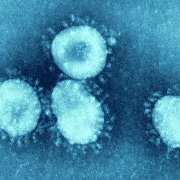COVID-19 Has Small Negative Impact on Important Companion Diagnostic Testing, Report Finds
Companion diagnostics are rising to the forefront of pharmaceutical development and treatment. Companion diagnostics increase the probability of clinical success by identifying patients with the presence of biomarkers or disease-specific therapeutic targets that can dramatically improve outcomes. The COVID-19 pandemic has gripped the world and continues to be a major area of research and development for diagnostic test developers.
Several approaches continue to evolve, including the use of personalized medicine technologies being adjusted to address the COVID-19 need.
Spartan Bioscience developed its CE and FDA approved DNA analyzer to detect risk of poor treatment choices for patients taking various antiplatelets, antidepressants and PPIs. People carrying CYP2C19 mutations can impair drug metabolism and alter response to drug therapy. Over the first-half of 2020, Spartan Bioscience has shifted its technology to focus on detecting COVID-19 and Legionella using its qPCR on-site DNA analyzer.
Our report on companion diagnostics (https://kaloramainformation.com/product/companion-diagnostics-in-the-covid-19-era/), and found that COVID-19 has had a small impact on the market for important cancer test and drug combinations. But since the oncology therapeutics these tests help facilitate are critically important for patients, that impact was limited. This was according to informal surveys of companion diagnostic vendors conducted by the authoring analysts of the market report.
Along with new developments, diagnostic service providers are also shifting workloads to address the demand for COVID-19 services. MiraDx, for example, has opened its CLIA-certified lab to providing COVID-19 test services. The lab has an analyze capacity of over 9,000 tests with no backlog, reported by MiraDx. The company also reports test results are available in approximately 48 hours and are being prioritized for hospitals, essential workers and field-based healthcare workers. MiraDx lists the test at $150 per completed test.
Minimal Ongoing Disruptions
Analysts contacted some oncology treatment centers and others focusing on CDx activity to determine the impact of COVID-19 on laboratory activity. The analysts of the report found.
• Initial (March 2020) decline in CDx requisitions, yet by April 2020 this was largely resolved;
• Less than 10 percent reduction in test volume reported;
• Budgets largely frozen, no capital expenditures will be initiated in the foreseeable future;
• Some backlog on processing tests due to restructuring of hours and laboratory layout requirements; and
• By appointment only lab draws were in effect beginning around February 2020 for some facilities and ongoing through April 2020 which impacted test volume slightly.
Delaying treatment in patients with overall good prognosis would be detrimental to the outcome in some patients prescribed targeted therapies, primarily cancer therapies. Therefore, oncologists report only minimal delays in treatment which is often determined case-by-case, dependent on factors such as disease status, cancer type, age of the patients, etc.
For example, systemic therapy may be delayed for a short period in patients aged 50 or older with non-aggressive tumor types; in contrast, delaying treatment in an aggressive tumor could be catastrophic to the patient’s outcome. The National Institutes of Health (NIH) lists more than 200 clinical trials currently underway for COVID-19 biomarker discovery, development and clinical application.
Along with new developments, diagnostic service providers are also shifting workloads to address the demand for COVID-19 services. MiraDx, for example, has opened its CLIA-certified lab to providing COVID-19 test services. The lab has an analyze capacity of over 9,000 tests with no backlog, reported by MiraDx. The company also reports test results are available in approximately 48 hours and are being prioritized for hospitals, essential workers and field-based healthcare workers. MiraDx lists the test at $150 per completed test.
There is also a growing trend for treatment centers, specifically cancer treatment centers, and research hospitals to get involved in the COVID-19 recovery plan. The Sidney Kimmel Comprehensive Cancer Center at Johns Hopkins University (Baltimore, Maryland, United States) is gearing up to commence a Phase II trial to promote recovery from COVID-19 with ivermectin or bicalutamide endocrine therapy. The study is an interventional trial with an estimated enrollment of 60 participants that have had a confirmed PCR test of COVID-19 infection and require inpatient hospitalization due to COVID-19 with minimal or no respiratory symptoms. Estimated start date is June 2020 with estimated completion in June 2021.



